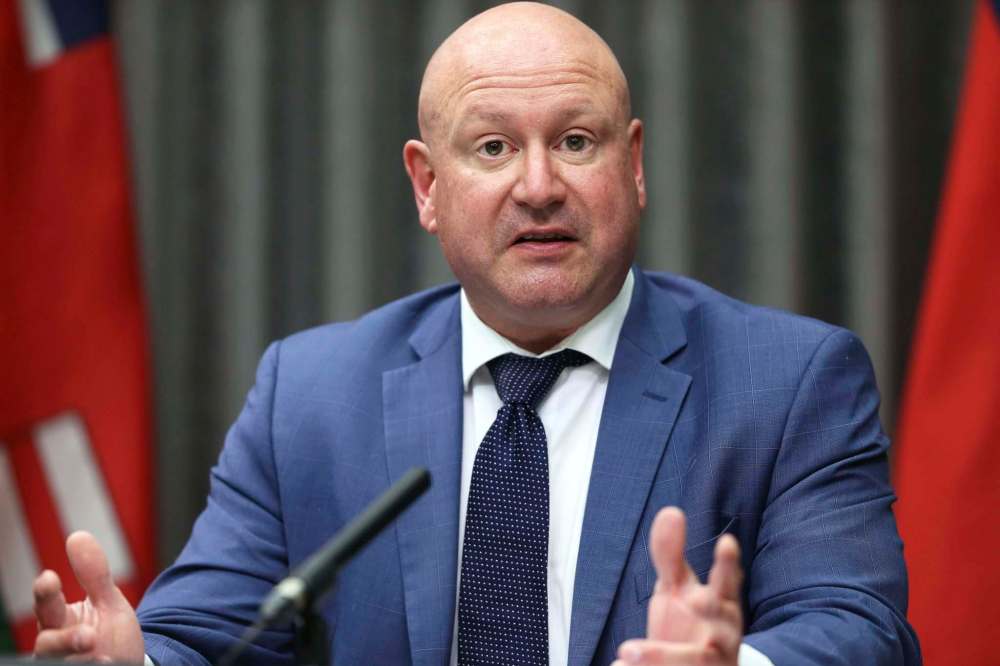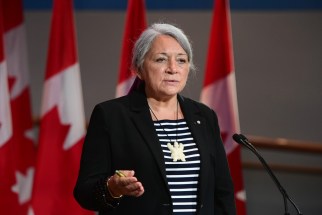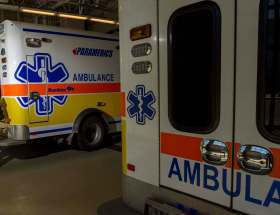‘Post-pandemic Manitoba’ is on the horizon
Read this article for free:
or
Already have an account? Log in here »
To continue reading, please subscribe:
Monthly Digital Subscription
$0 for the first 4 weeks*
- Enjoy unlimited reading on winnipegfreepress.com
- Read the E-Edition, our digital replica newspaper
- Access News Break, our award-winning app
- Play interactive puzzles
*No charge for 4 weeks then price increases to the regular rate of $19.00 plus GST every four weeks. Offer available to new and qualified returning subscribers only. Cancel any time.
Monthly Digital Subscription
$4.75/week*
- Enjoy unlimited reading on winnipegfreepress.com
- Read the E-Edition, our digital replica newspaper
- Access News Break, our award-winning app
- Play interactive puzzles
*Billed as $19 plus GST every four weeks. Cancel any time.
To continue reading, please subscribe:
Add Free Press access to your Brandon Sun subscription for only an additional
$1 for the first 4 weeks*
*Your next subscription payment will increase by $1.00 and you will be charged $16.99 plus GST for four weeks. After four weeks, your payment will increase to $23.99 plus GST every four weeks.
Read unlimited articles for free today:
or
Already have an account? Log in here »
Hey there, time traveller!
This article was published 06/07/2021 (1616 days ago), so information in it may no longer be current.
In the realm of strategic communications, it’s known as “shifting the narrative.”
The term refers to the deliberate reframing of the facts related to a particular situation in an effort to alter the shared societal interpretation of how things work. In the case of Manitoba’s ongoing pandemic response, Monday’s COVID-19 briefing represented a moment of noteworthy narrative shift.
Chief provincial public health officer Dr. Brent Roussin used his usual recap of figures, statistics, restriction updates and hinted-at future amendments to emphasize a term he — and, presumably, the provincial government to which he is accountable — would clearly like the public to start seriously considering: “a post-pandemic Manitoba.”

With the province’s catastrophic third pandemic wave in what appears to be full-on recession and vaccine-delivery rates now well ahead of projections — the August long weekend targets for next-stage reopening have been met this week — the official messaging has adopted a decidedly more optimistic tone.
Where short weeks ago the daily updates were filled with grim case-count tallies and revelations of more intensive-care patients being airlifted to out-of-province facilities, the shifted narrative now favours a checklist of privileges to be regained as public-health directives push toward a gradual easing of restrictions.
“We know that all pandemics end,” Dr. Roussin observed, “and this one will be no different.”
What’s important to note, however, is that while the chapter of the COVID-19 story in which the viral spread qualifies as a pandemic will come to a close, the virus itself is not going away. We will, as Dr. Roussin and other health officials have implored, have to “learn to live with” COVID-19.
In the U.K. this week, British Prime Minister Boris Johnson laid out an aggressive plan that calls for the almost-complete elimination of pandemic restrictions by the middle of this month — despite a recent surge in COVID-19 infections related to the more contagious delta variant having gained prominence in recent case counts.
In the U.K., July 19 could bring an end to mandated mask use, the removal of social-distancing requirements and a full reopening of businesses and sports and recreation facilities, as well as the end of government-issued directives for people to work from home whenever possible.
“We’re never risk-free. We need to decide on how much risk we’re willing to take as individuals.” — Dr. Brent Roussin, Chief provincial public health officer
Mr. Johnson’s shifting of the British narrative includes a concession that reopening will bring more infections and deaths. How many more, he declared, will become a matter of “personal responsibility” rather than government-restriction adherence.
Critics of the plan, including virologist Richard Tedder, say the approach prematurely favours commerce over caution, creating “the very real risk of facilitating the escape of variants which will be even more resistant to vaccines and potentially more infectious.”
While the U.K.’s approach is much more aggressive than what is being touted as the post-pandemic Manitoba plan — it’s worth noting that Britain’s vaccination rate is significantly higher than what has been achieved here to date — what the two strategies share is a commitment to easing restrictions while the threat of a next-wave surge still looms.
“We’re never risk-free,” said Dr. Roussin. “We need to decide on how much risk we’re willing to take as individuals.”
With the delta variant lurking in Manitoba’s viral shadows, one hopes the next steps on the road to post-pandemic are informed by public-health prudence rather than outbursts of competitive political zeal such as those that twice previously led to premature declarations of victory followed by catastrophic new waves of infection.
Shifting the narrative cannot include an abandonment of abundant caution.






